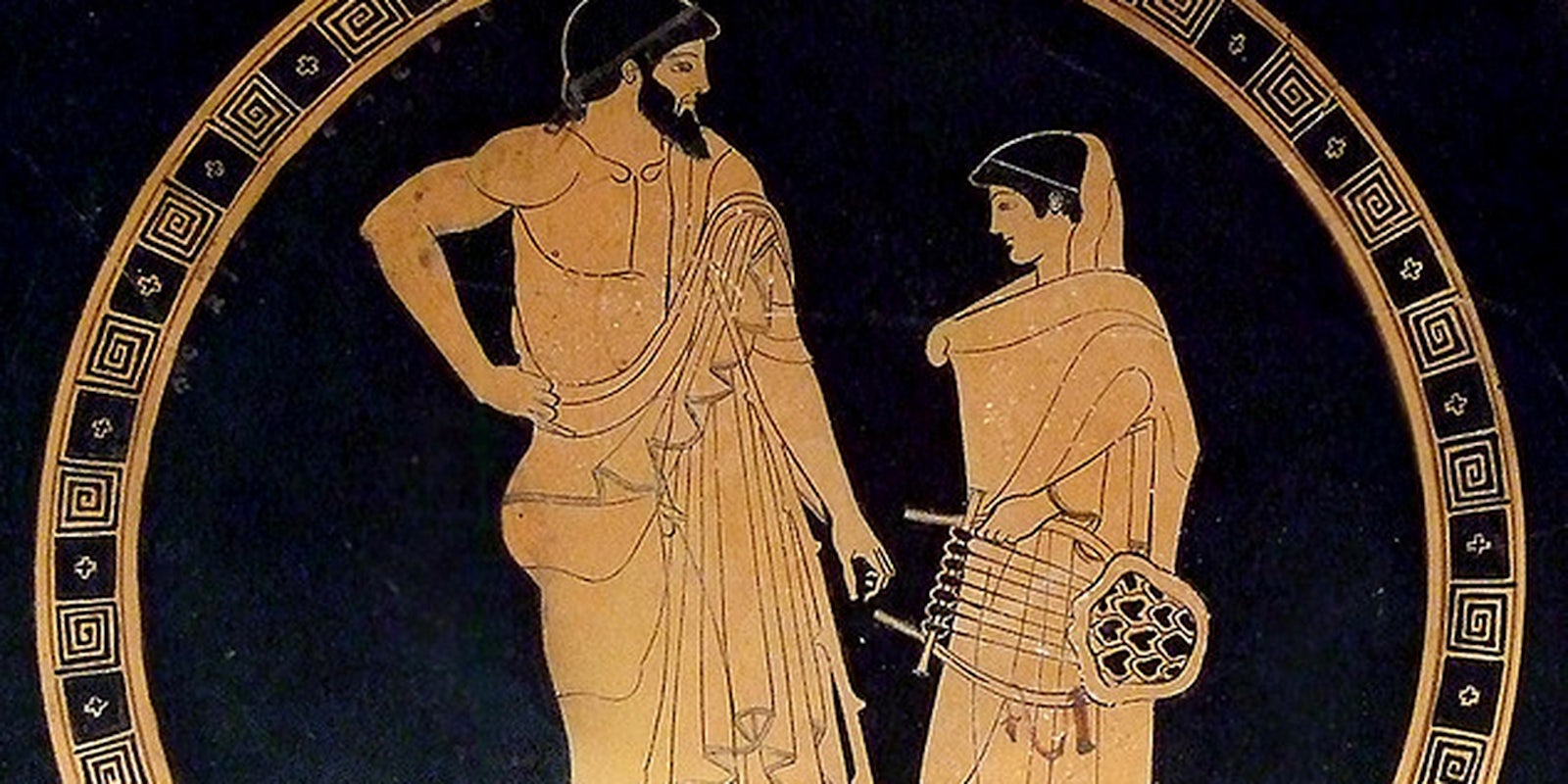New technology has allowed scientists and historians to build on the work of their predecessors and resurrect and share online the sounds of our collective past. From the liturgical echoes of Stonehenge to the timbre of ancient instruments to Shakespeare’s English, what has fallen silent has been made to speak again.
Add to those achievements the music that accompanied classical Greek drama and lyric. Whether the dramatic verse of Aeschylus or the personal poetry of Sappho, Greek poetry was sung to the accompaniment of musical instruments.
BBC recording of D’Angour’s colleague, David Creese, demonstrating the different tunings given to the Seikilos epitaph by the mathematician Ptolemy.
Oxford tutor and musician Dr. Armand D’Angour has reconstructed this music by leveraging instructions both implicit and explicit in the historical record.
“We have been left with clear instructions, thousands of years old, about how to create instruments used to play the music with mathematical precision.” he told the British news site MailOnline.
The instructions consisted of the rhythms inherent in the texts. Ancient Greek created meter through the alternation of long and short syllables. The instruments used were reproduced on wall paintings, vases, sculptures, and even a few remains. There is certainly no shortage of images of Greek musical instruments in the historical record.
Finally, papyrus manuscripts in Egypt and stone monuments in Greece itself explain how the compositions of the time were structured, including the ratios of intervals and the rise and fall of pitch and the timing of those changes, both in narrative and by the use of a musical notation system.
D’Angour said earlier Greek music from, say, the 5th century B.C.E., sounds much more alien to our ears than that of 200 C.E., which he said sounds like early Church music.
Given that the discoveries of D’Angour and his team are at the beginning of a two-year project, one would hope the musical archaeology will add a lot more to our understanding of Greek music and mindset, important as they were to the development of Western culture.
“By the end of my project I hope to put a number of faithful and, I hope, appealing reconstructions of ancient Greek music online,” Dr. D’Angour told The Daily Dot.
D’Angour is himself an accomplished cellist.
“I hope my restored music will be more true to the evidence, but sung and played as well as possible on the kinds of instruments we know would have been used,” he said.
Certainly the first production at Epidaurus of Oedipus Rex to be performed to a reconstituted score should prove eerie enough.
H/T MailOnline | Photo by ElissaSCA/Flickr


